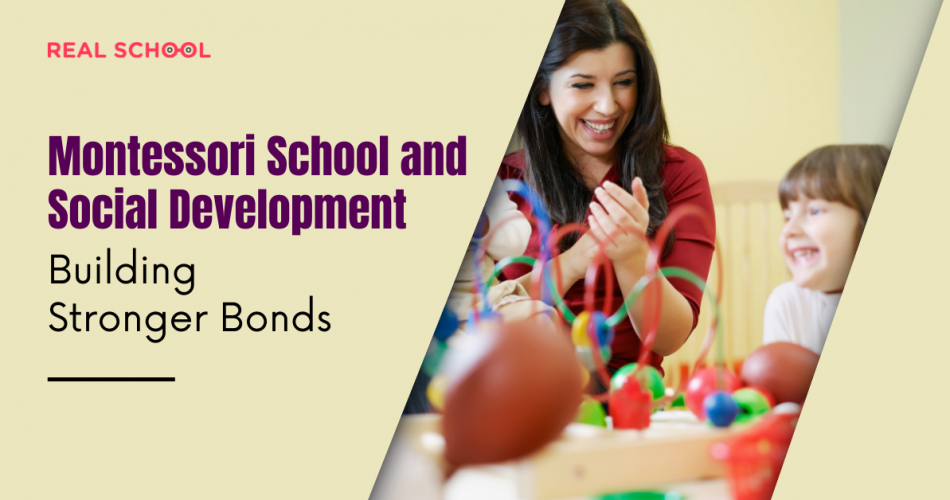Montessori education goes beyond academic learning; it places a strong emphasis on social development and the importance of building stronger bonds among students. Dr. Maria Montessori believed that a supportive and collaborative learning environment is essential for a child’s overall growth and well-being. In this article, we will explore how Montessori schools foster social development, encourage meaningful connections, and build stronger bonds among students.
Mixed-Age Classrooms
One distinctive feature of Montessori schools is the use of mixed-age classrooms. Instead of segregating students solely by their age, children of different ages are grouped together. This arrangement creates a family-like atmosphere where older children naturally mentor and support younger ones. Interacting with peers of various ages allows children to learn from one another, practice empathy, and develop a sense of responsibility towards others.
Collaborative Learning
Collaboration is at the core of the Montessori philosophy. Students are encouraged to work together on projects, problem-solving tasks, and group activities. Collaborative learning fosters teamwork, effective communication, and the ability to respect diverse perspectives. Children learn to appreciate each other’s strengths and contributions, which builds a sense of belonging and unity within the classroom community.
Encouraging Empathy and Respect
Montessori schools actively teach empathy and respect as essential social values. Teachers model these behaviors, and children are encouraged to practice them in their interactions with peers. Children are taught to listen actively, express kindness, and consider others’ feelings. A culture of empathy and respect creates a safe and nurturing space where children feel understood and valued.
Peace Education
Montessori education includes a dedicated aspect called “Peace Education.” Children are exposed to the concept of peace, conflict resolution, and understanding cultural differences. They learn to identify and express their emotions constructively, leading to a harmonious and cooperative environment. Peace education equips children with essential social skills that promote positive relationships.
Grace and Courtesy Lessons
Montessori schools incorporate “Grace and Courtesy” lessons to teach children essential social etiquette. Children learn how to greet others, wait patiently, and engage politely in conversation. These lessons promote good manners, consideration for others, and effective communication skills, fostering positive social interactions.
Supportive Learning Environment
Montessori schools prioritize creating a supportive learning environment where children feel safe to express themselves. Teachers cultivate an atmosphere of trust and encourage open communication. When children feel emotionally supported, they are more likely to engage in social interactions confidently and form meaningful connections with their peers.
Conflict Resolution Skills
Montessori schools teach children valuable conflict resolution skills. Instead of intervening immediately, teachers guide children through peaceful problem-solving processes. Children learn to express their needs, listen to others, and find mutually beneficial solutions. This approach nurtures conflict resolution abilities and encourages children to resolve disagreements amicably.
Building a Sense of Community
In Montessori schools, children participate in classroom activities, celebrations, and responsibilities as a community. The sense of belonging strengthens social bonds and creates a shared sense of purpose among students. Children learn to work together for the collective benefit of the classroom community, fostering a strong sense of unity.
Conclusion
Montessori schools prioritize social development as an integral part of a child’s education. Through mixed-age classrooms, collaborative learning, empathy, and peace education, Montessori schools build stronger bonds among students. By teaching grace and courtesy, conflict resolution skills, and creating a supportive learning environment, Montessori education fosters positive social interactions and lays the foundation for lifelong friendships and meaningful connections.
FAQs (Frequently Asked Questions)
How do Montessori schools handle conflicts among students in a mixed-age classroom?
What are some examples of collaborative learning activities in a Montessori school?
How do Montessori schools promote cultural diversity and understanding among students?
How does Montessori education support shy or introverted children in their social development?
Can the social skills developed in a Montessori school setting be applicable outside the classroom?







